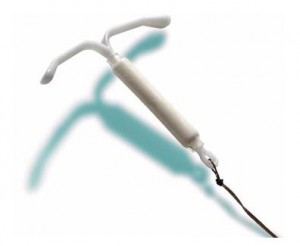FREE MIRENA CASE EVALUATIONS: CALL 1-800-632-1404
Our team of attorneys are now investigating claims and prepared to file Mirena lawsuitsinvolving the intrauterine contraceptive device Mirena®. Manufactured by Bayer Healthcare Pharmaceuticals, Inc., Mirena is an IUD device [intrauterine device] that must be inserted by a trained health care provider and is intended to provide contraceptive protection for up to five years. Some women have experienced serious adverse side-effects and potentially life-threatening complications following the implantation of theMirena device, including perforation of or imbedment in the uterus.
What Is a Mirena-Caused Hysterectomy?
Mirena is alleged to have many side effects. Mirena is an interuterine contraceptive device {IUD}. Our team includes Mirena attorneys that want to provide information to women or their loved ones about making a Mirena claim or to discuss a Mirena lawsuit.
One such injury that can result is a hysterectomy. A hysterectomy can be performed through an abdominal incision or by an approach through the vagina. In general, abdominal hysterectomy is reserved for patients with a greatly enlarged uterus and those with suspected cancer.
Hysterectomy results in irreversible sterilization. This occasionally causes problems in women for whom fertility is an important component of their sexual identity. The spouse may also react adversely to the operation; lack of understanding may lead to fear that his partner has been physically weakened or altered in a way that he finds difficult to assess. In couples where sex has been unrewarding or continued with a sense of obligation to normality, the operation may be used as an excuse to bring the sex life to an end.
A hysterectomy (total or complete) involves removing the uterus and cervix. The woman continues to ovulate, but does not have menstrual periods. Removal of the uterus can be done through an abdominal incision or through the vagina. A number of risks and complications can result from a hysterectomy: (1) The death rate is between 1 and 2 women in 1,000; (2) as a sterilization method, it has 20 times the complication rate of a tubal ligation; (3) surgical complications include infection (which is sometimes severe), urinary tract complications (almost half of the women have kidney or bladder infections following surgery; sensory nerves may be cut, causing loss of the sensation of having to urinate and control bladder function), hemorrhage (1 woman in 10 requires transfusions), bowel problems (due to damage to the intestines during surgery), blood clots, death or paralysis from anesthesia, and postsurgical complications.
Patients are readily reassured that there is no impact on sexual response from hysterectomy and that any problems women report have a psychological cause. However, 33 to 46 percent of women have difficulty becoming aroused and reaching orgasm after hysterectomies. There are three plausible explanations for diminished arousal: (1) Uterine contractions contribute to arousal and orgasm by causing increased stimulation of the abdominal lining; (2) there is less tissue in the pelvic area to become engorged with blood, which adds to the sexual arousal sensation; and (3) when the ovaries are removed, ovarian androgens, which affect sexual response and cannot be replaced by estrogen replacement therapy, may be greatly reduced.
If you fit any of these descriptions above, we urge you to contact our team of Mirena lawyers at 1-800-632-1404 to discuss, or please fill out a form to the right or below. We stand ready to discuss how we can try and help you.
FOR A FREE CASE EVALUATION:
CALL TOLL FREE: (800) 632-1404
EMAIL: clicking here.
FILL OUT THIS FORM FOR FREE HELP:
NOTE: Our team of attorneys will review potential cases for all fifty states, including Alabama Alaska Arizona Arkansas California Colorado Connecticut Delaware Florida Georgia Hawaii Idaho Illinois Indiana Iowa Kansas Kentucky Louisiana Maine Maryland Massachusetts Michigan Minnesota Mississippi Missouri Montana Nebraska Nevada New Hampshire New Jersey New Mexico New York North Carolina North Dakota Ohio Oklahoma Oregon Pennsylvania Rhode Island South Carolina South Dakota Tennessee Texas Utah Vermont Virginia Washington West Virginia Wisconsin and Wyoming.
